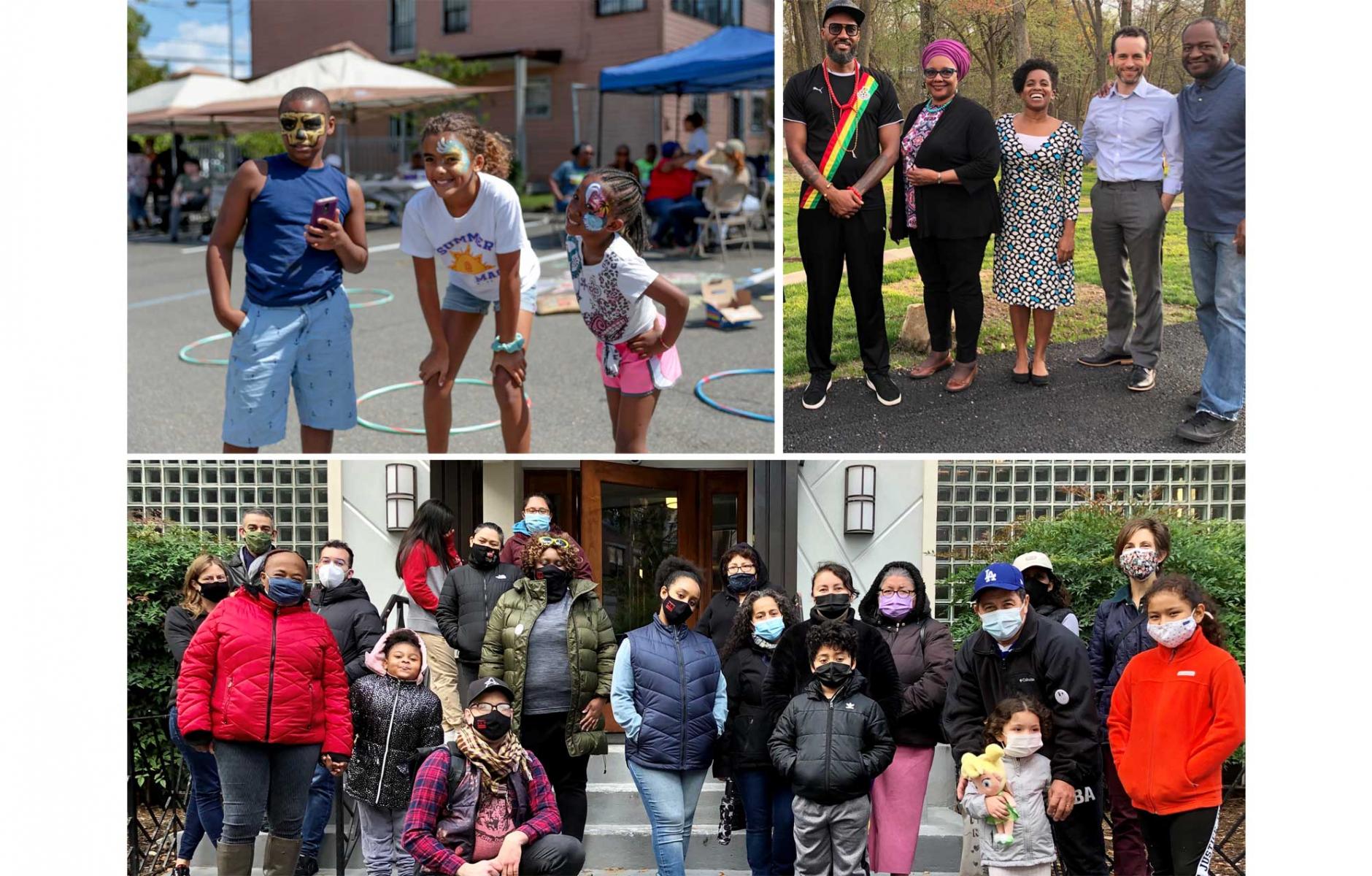
Community Land Trust is planting the roots of housing affordability
The 11th Street Bridge Park’s equitable development plan was created in 2015 in response to community feedback to ensure that existing residents and small businesses near the Bridge Park would continually benefit from this new civic space. To address a concern over gentrification and displacement, a community-controlled land trust (CLT) was incubated by City First Homes, a DC government-based nonprofit, with assistance from residents who volunteered their time to join an Advisory Committee.
The CLT Advisory Committee worked with bridge park supporters to educate and raise awareness of the concept, and the Douglass Community Land Trust (CLT) was incorporated as an independent nonprofit in 2019. Douglass CLT emphasizes meeting people where they are. “It’s not just hosting a meeting, it's being out there in these neighborhoods frequently to be able to get that actual engagement,” says Douglass CLT Board President Sheldon Clark.
Community land trusts began in the United States in 1970 with the New Communities land trust in Southern Georgia on a 5,000 acre farm developed by civil rights leaders. Today, there are an estimated 277 community land trusts nationwide.
Douglass Community Land Trust, like many CLT organizations, is member-driven and has an emphasis on community control where the power and decision-making belong in the hands of community members. The organization also provides stewardship services to ensure properties maintain value and remain safe, and any participating CLT resident has the opportunity to become involved and lead the trajectory of the organization.
Like most CLTs, Douglass secures affordability by separating the ownership of the land from the buildings. The CLT buys the land title and then issues a lease back to the owner of the property and incorporates a permanent affordability covenant. There are three main models available with Douglass CLT: rental, homeownership, and small business—and there are currently 223 units in the system with more being developed in 2022.
Douglass CLT uses a Pay It Forward model centering on racial and economic equity to plant the roots of housing affordability. This model keeps the focus on serving more than one generation of residents that own, rent, or operate a local business within the CLT. This means that rather than a household taking all the appreciated value with them when they leave, each owner leaves part of that increased value in the property so future generations can benefit.
However, in the Anacostia community where residents are most likely to be impacted by development, the average income is around $25,000 so there was a needed focus in the property portfolio on renting versus homeownership to get more community members into the program sustainably. The CLT model helps keep rental payments lower, which allows for households to save money—but there are fewer wealth generation opportunities in rental situations.
While it would be preferable to get residents into homeownership, DC is a trendy and expensive market that is not always cost efficient for the CLT model. “With all types of housing, we look at them as tools we have to help combat the housing crisis we have here in Washington, DC. We don’t believe one size fits all,” says Vaughn Perry, Director of Equity for the 11th Street Bridge Park.
In working to engage with residents, Vaughn also found that for all the education needed for community members, even more was needed for the District council and District housing agencies. Thanks to that hard work, there has been a turning point in elected official’s understanding of the importance of CLTs. Douglass CLT was awarded $2M in the 2022 DC budget.
Douglass CLT was also part of a team that won a competitive proposal for redeveloping the Langston and Slater Schools site in Northwest DC. The project will produce approximately 55 new units, and is an endorsement from the District of Douglass CLT and the CLT model as part of the District’s housing affordability toolbox.
Even more, there is further opportunity for CLTs to be a part of the New Urbanist toolbox more broadly. New Urbanism often focuses on the physical organization of communities and could greatly benefit from having the governance structure of a community based organization like a CLT to incorporate stewardship and equity into the community.
Douglass CLT is one of many community land trusts in the United States, so if you align with the goals and priorities of furthering affordable housing and being a force for anti-displacement in DC and beyond, Sheldon and Vaughn welcome you to become a member.




